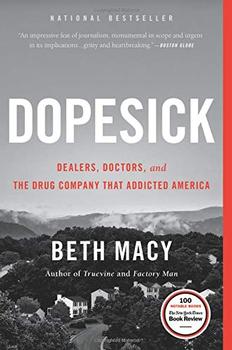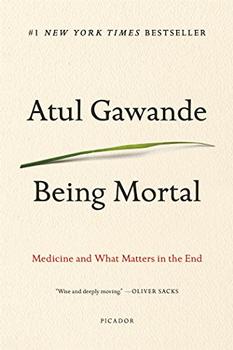Summary | Excerpt | Reviews | Beyond the book | Read-Alikes | Genres & Themes | Author Bio

A Physician's Quest to Transform Care Through the End of Life
by Ira ByockA palliative care doctor on the front lines of hospital care illuminates one of the most important and controversial ethical issues of our time on his quest to transform care through the end of life.
It is harder to die in this country than ever before. Statistics show that the vast majority of Americans would prefer to die at home, yet many of us spend our last days fearful and in pain in a healthcare system ruled by high-tech procedures and a philosophy to "fight disease and illness at all cost."
Dr. Ira Byock, one of the foremost palliative-care physicians in the country, argues that end-of-life care is among the biggest national crises facing us today. In addressing the crisis, politics has trumped reason. Dr. Byock explains that to ensure the best possible care for those we love - and eventually ourselves - we must not only remake our healthcare system, we must also move past our cultural aversion to talking about death and acknowledge the fact of mortality once and for all.
Dr. Byock describes what palliative care really is, and - with a doctor's compassion and insight - puts a human face on the issues by telling richly moving, heart-wrenching, and uplifting stories of real people during the most difficult moments in their lives. Byock takes us inside his busy, cutting-edge academic medical center to show what the best care at the end of life can look like and how doctors and nurses can profoundly shape the way families experience loss.
Like books by Atul Gawande and Jerome Groopman, The Best Care Possible is a compelling meditation on medicine and ethics told through page-turning, life or death medical drama. It is passionate and timely, and it has the power to lead a new kind of national conversation.
In this suspenseful, moving and indispensable book, Byock shares a great deal of important information... I especially appreciate Byock's affectionate and optimistic view of human nature. He believes that caring for one another is essential to human character and that death, when done right, affirms love, heals loss and completes and enriches our lives...continued
Full Review
(753 words)
This review is available to non-members for a limited time. For full access,
become a member today.
(Reviewed by Jo Perry).
One cannot finish Dr. Byock's book without resolving, as much as possible, to take responsibility for one's own death and to become deeply involved in the experiences and medical treatments of those we love who are dying.
His website, www.dyingwell.org, provides readers with additional information and helpful resources on the topic of dying, specifically on the emotional work required when saying our final farewells:
This "beyond the book" feature is available to non-members for a limited time. Join today for full access.

If you liked The Best Care Possible, try these:

by Beth Macy
Published 2019
The only book to fully chart the devastating opioid crisis in America: An unforgettable portrait of the families and first responders on the front lines, from a New York Times bestselling author and journalist who has lived through it.

by Atul Gawande
Published 2017
In Being Mortal, bestselling author Atul Gawande tackles the hardest challenge of his profession: how medicine can not only improve life but also the process of its ending
No pleasure is worth giving up for the sake of two more years in a geriatric home.
Click Here to find out who said this, as well as discovering other famous literary quotes!